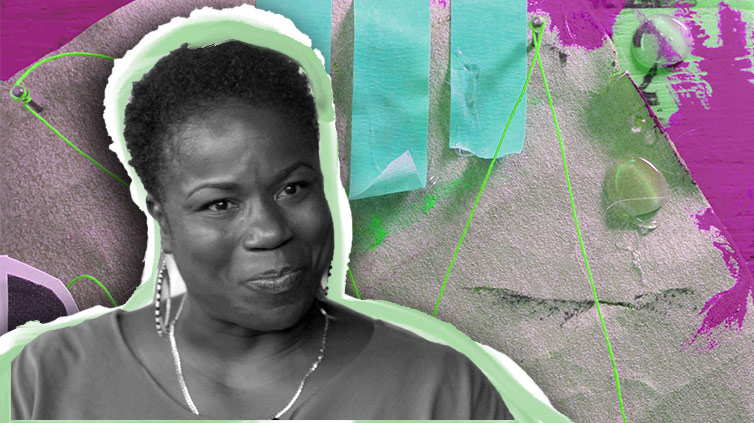Turning pain into power: How a grieving mother transformed a neglected block near Detroit into a village of beauty and opportunity
Share
Explore Our Galleries
Breaking News!
Today's news and culture by Black and other reporters in the Black and mainstream media.
Ways to Support ABHM?
By Meg Dunn, CNN

Highland Park, Michigan (CNN) — Every parent’s worst nightmare is losing their child. Shamayim Harris has lived through that nightmare – twice.
On September 23, 2007, her 2-year-old son, Jakobi Ra, was struck and killed in a hit-and-run in Highland Park, a suburb of Detroit.
“I literally thought that I wouldn’t be able to function or be alive or anything,” she recalled.
Back in 2021, she experienced that heart-wrenching loss again when her 23-year-old son, Chinyelu, was shot and killed while doing a neighborhood watch in his community.
As she faced her profound grief, she also discovered her strong determination to channel it into something good. For the last 15 years, her trauma has fueled her mission to transform her struggling, neglected community into a vibrant village.
“I needed to … change grief into glory, pain into power,” said Harris, who is known as Mama Shu. “I just tried to transform it into something bearable and something beautiful.”
In the early 1900s, Highland Park, Michigan, became famous as the home of the first Ford Motor Company factory, producing millions of Model T cars. But as the automotive industry left the area, the city suffered. Residents moved away, crime accelerated, schools shut down, storefronts were vacated.
“I was devastated about what I would see walking around Highland Park,” said Mama Shu. “I wanted to live in a beautiful city [with] flowers [and] thriving businesses. That is what we deserve.”
Find out what became of Highland Park as a result of Mama Shu’s determination in the original article.
Learn more about the racial side of Detroit’s history in this Breaking News article.
Read more Breaking News here.









Comments Are Welcome
Note: We moderate submissions in order to create a space for meaningful dialogue, a space where museum visitors – adults and youth –– can exchange informed, thoughtful, and relevant comments that add value to our exhibits.
Racial slurs, personal attacks, obscenity, profanity, and SHOUTING do not meet the above standard. Such comments are posted in the exhibit Hateful Speech. Commercial promotions, impersonations, and incoherent comments likewise fail to meet our goals, so will not be posted. Submissions longer than 120 words will be shortened.
See our full Comments Policy here.